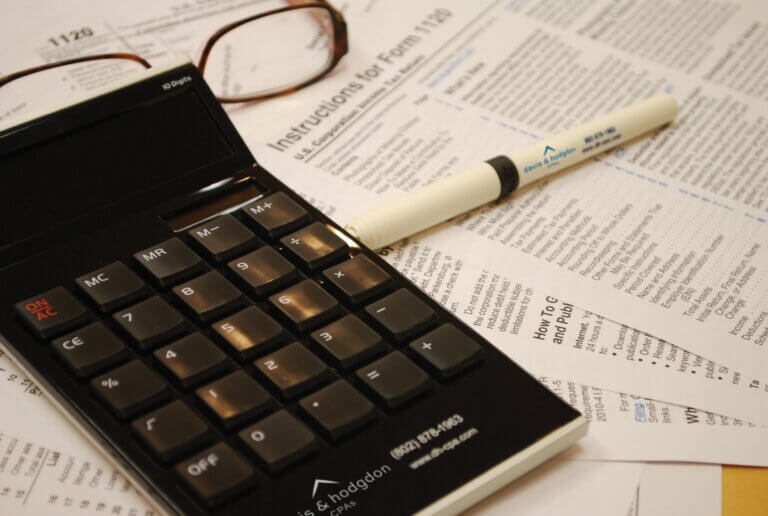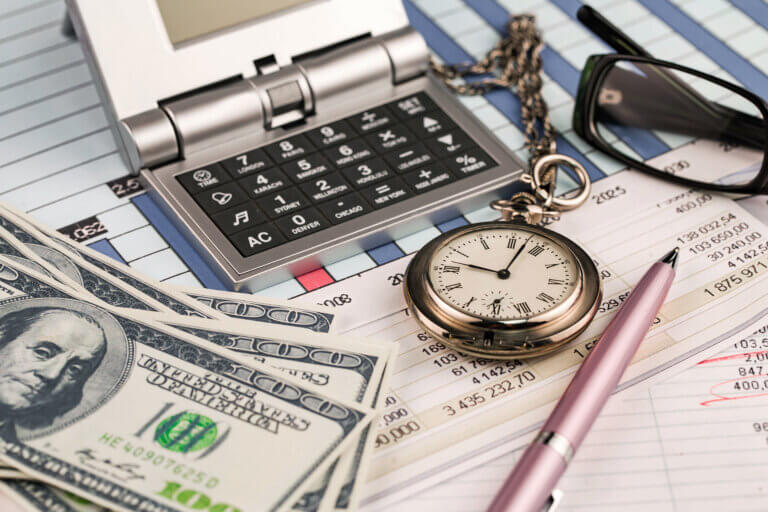Payment of Vermont Sales and Use Tax by Contractors
The Vermont Department of Taxes has published the following information to provide guidance for contractors on the proper application of the Vermont Sales and Use Tax.
Sales tax when improving real property
When contractors incorporate tangible personal property into buildings, structures, and landscapes, the contractor should not charge sales tax to the customer. The exception is when the person acting as a contractor is primarily a retailer or manufacturer and has made the election (see the box to the right). Other than this exception, the contractor should pay tax on the tangible personal property at the time of purchase. The cost of service is not subject to sales tax.
If the contractor did not pay 6% sales tax on tangible personal property, he or she must pay use tax directly to the state. Use tax is due on the same date and cycle as sales tax and is payable on the same form, SUT-451.
Examples of real property improvements include electrical, plumbing, heating, ventilation, and cooling systems; carpentry; roofing; plastering; foundations; landscaping; and painting. Improvements and repairs to septic systems, parking lots, and driveways are also treated as improvements of real property.
Although contractors cannot itemize the sales tax on their invoices, the invoices may include the statement: “The contractor has paid all applicable Vermont taxes on materials used for this job.”
Equipment is subject to sales and use tax
When contractors purchase, rent, or lease equipment and use it in Vermont, it is always subject to Vermont Sales Tax. Tax applies even when contractors use equipment on exempt projects. If the contractor does not pay 6% sales tax at the time of purchase, the contractor must pay Vermont Use Tax.
A few examples of taxable rentals subject to tax include equipment, such as earth moving machinery, cranes, generators, or trailers for project management. These types of equipment are frequently rented or leased by contractors on a job-specific basis.
Examples of equipment subject to sales and use tax that are frequently purchased by contractors include items such as ladders, saws, drills, and nailguns. The
purchase of blueprints also falls into this category and is subject to tax.
Out-of-state contractors working on Vermont property
Out-of-state contractors working in Vermont are subject to the use tax in the same way as Vermont contractors. Sales tax must be paid on supplies, materials, and equipment used for the improvement of Vermont properties when purchased or rented from Vermont vendors. If 6% sales tax has not been paid on supplies and equipment brought into the state, then use tax is due.
For equipment purchased for a Vermont project and brought into the state, out-of-state contractors should base the use tax on the market value of the equipment when it is brought into the state. Contractors bringing tangible personal property into the state for fewer than six months for use in a project may base the use tax on the fair rental value of the property for the period of use within the state. 32 V.S.A. §9774(2).
Vermont contractors working out of state
Purchases of supplies and materials by Vermont contractors from Vermont vendors are subject to sales tax, even if they will be used in another state. However, there is an exemption from use tax if the supplies and materials are for use on a property in a state with no sales or use tax, and are stored in Vermont for 180 days or less. For example, if a contractor purchases materials online from a vendor that does not collect Vermont tax, has them delivered to Vermont, and stores them in Vermont for one month before use on a job in New Hampshire, no use tax is due on the materials.
Improvements to exempt properties
There is no sales tax due on building materials and supplies used in the construction, reconstruction, alteration, remodeling, or repair of any building or structure meeting one of the following conditions:
- Owned by or held in trust for the benefit of the State of Vermont or the United States of America or their agencies and instrumentalities and used exclusively for
public purposes (including public works) - Owned by or held in trust for the benefit of an organization exempt under the provisions of Section 501(c)(3) of the United States Internal Revenue Code and used exclusively for the purpose upon which its exempt status is based
- Owned by a local development corporation as defined in 10 V.S.A. § 212(1) and used exclusively for the purposes authorized in Chapter 12 of Title 10.
Note: This exemption does not apply to property that is leased but not owned by or held in trust for such organizations.
Contractors must complete Form S-3C, Certificate of Exemption, from the Department of Taxes. The exemptions outlined above apply only to materials incorporated into and supplies consumed for the exempt project. Supplies that are consumed include items such as fuels for welding and equipment operation, and blades and bits for tools. The tools themselves are subject to sales tax when purchased even if the contractor intends to use those tools and equipment on an exempt job. Supplies such as protective clothing (hard hats and safety shoes), tarps, repair parts for construction machinery and equipment, and blueprints are not
consumed on a project and are subject to sales and use tax.
For Retailers and Manufacturers Who Sometimes Act as Contractors
Effective July 1, 2016, Act 134 of 2016 made one exception to the standard contractor rule. If you are primarily a retailer or manufacturer who occasionally acts as a contractor, you will continue to be treated as a contractor when purchasing material and supplies for use in improving, altering, or repairing real property. 32 V.S.A.§ 9701(5). “Treated as a contractor” means that you will pay sales tax for materials at the time of purchase. Primarily means more than 50% of your business.
However, Act 134 of 2016 also authorizes retailers and manufacturers who sometimes act as contractors to make an election to be treated as a retailer. This means, with the election, that they would not pay sales tax or remit use tax on materials or supplies used for the improvement of real property, but would instead charge sales tax to their end customers.
To view the fact sheet as published on the Vermont Department of Taxes website please click here.
Please note that this information is intended as general guidance and is not comprehensive, so please call our office in Williston 802.878.1963 or Rutland 802. 775-7132 Vermont for guidance on specific situations. Davis & Hodgdon Associates CPAs has been assisting Vermont individuals and business owners with tax consulting and strategizing for more than 25 years.



